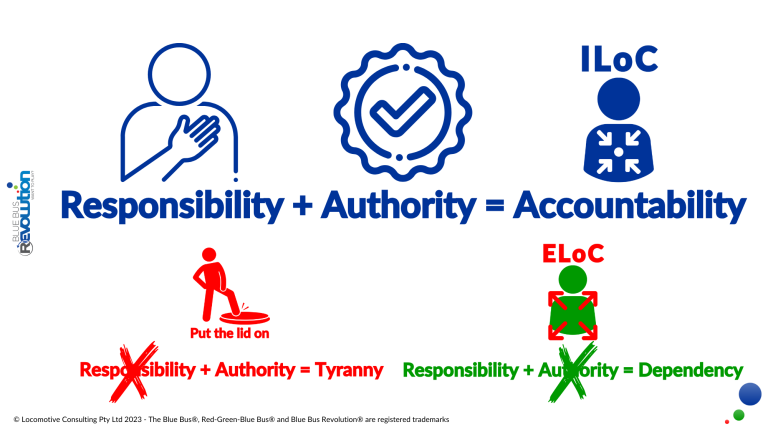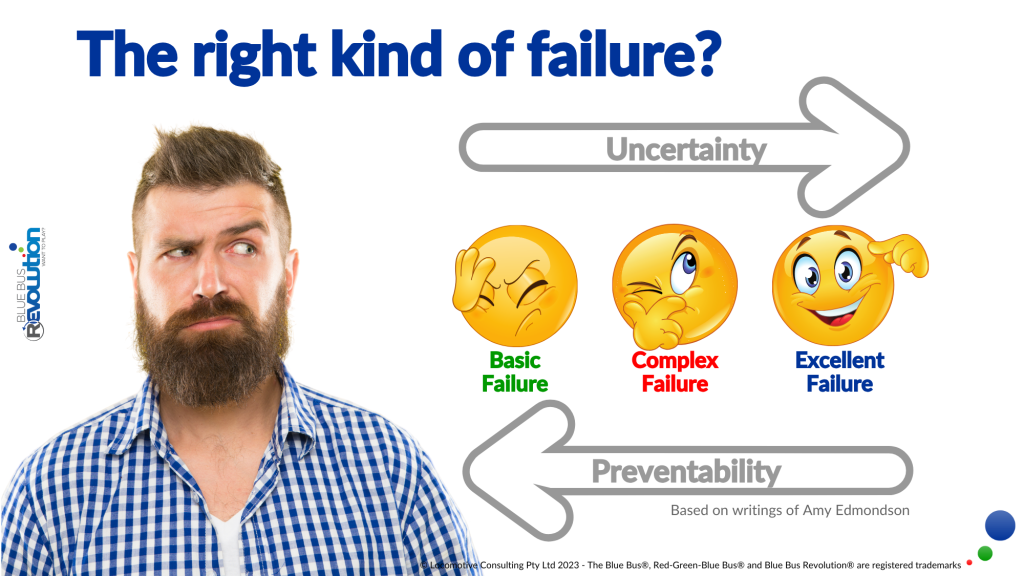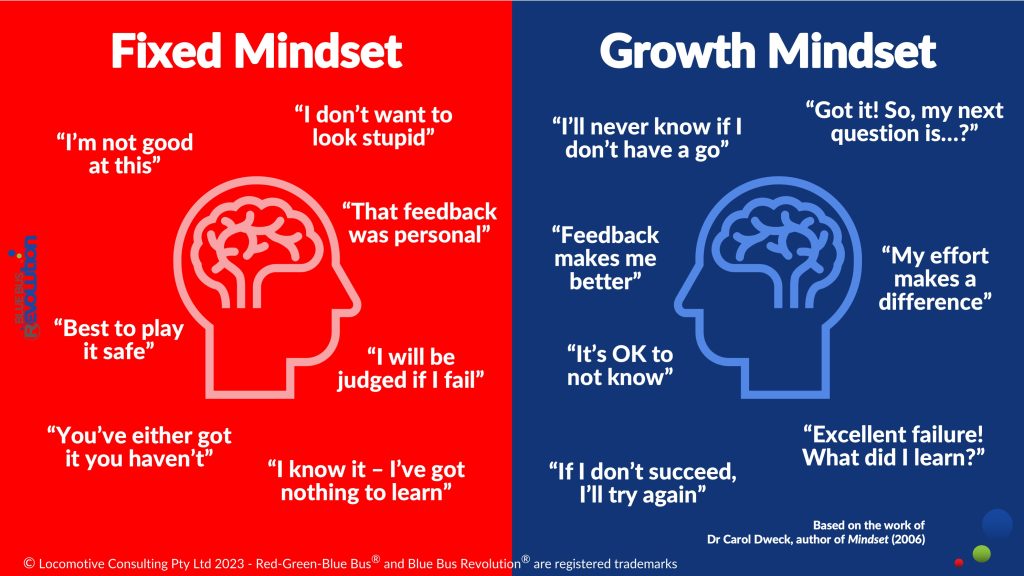Does your organisation have an accountability problem? Does it seem like everyone is operating to an All care but no responsibility mantra or – at the opposite end of the scale – do attempts to hold people to account look more like ham-fisted exercises in laying blame?
Accountability is the process of being held to account for those things for which we are responsible. This includes being held to account for the choices we make, the results we deliver, how we deliver those results and how we treat others along the way.
How organisations manage accountability is both a reflection of the culture and shapes the culture. Red Bus cultures use the extrinsic motivators of reward and punishment in an attempt to buy performance and command compliance, by default looking for who to blame when things go wrong. Green Bus cultures treat accountability like a hot potato to be passed to someone else as quick as you can if it can’t be avoided all together. Blue Bus cultures are high-performance cultures where accountability goes hand in hand with people taking ownership of their work and a commitment to doing the right thing.
Accountability in a Blue Bus culture is baked into social fabric of the organisation as well as the very design of work itself. This contrasts with Red Bus and Green Bus cultures where accountability is the after-the-event judgement of performance & behaviours, often outsourced to HR to do the messy work.
Red Bus and Green Bus organisations undermine accountability whenever they afford people authority over things for which they don’t take responsibility. You have probably had the experience of having to get the authority of someone playing the role of an overlord while never being required to take responsibility for the actual work or take accountability for the choices they make. This is the domain of Red Bus tyrants who seemingly have the capacity only to make other people’s jobs harder and never pitch in so as to help move things along.
This is the flip-side of Red Bus and Green Bus organisations denying people the authority they need to get their job done. People are told that their role is to deliver ‘X’ only to have to get permission form up the chain or consult an overly restrictive rule book before anything can get done. This is the lot of the customer service representative who tasked with mopping up other people’s failings yet given no authority or capacity to actually resolve the issue. This saps people of energy and commitment, encouraging them to get onto the Green Bus of doing just enough to get by an no more. In the result, decision-making is slow, initiative non-existent and managers relegated to having to crack the whip to get anything done.
Blue Bus cultures run to the formula that people can only be held to account – and will only hold themselves accountable – when they are afforded authority that matches their responsibilities.
Blue Bus leaders know that capable people who understand the mission will get the job done if given the opportunity to make their own decisions and have control over their work. Blue Bus organisations push authority out to where responsibility resides rather than hoarding authority high in the hierarchy. This ensures that authority sits closest to the information required to make the best and most timely decision. This sets the scene for not only responsive, agile decision making but also for employees to be at the forefront of innovation and making ethical decisions.
So, your organisation has a choice. Defer to after-the-fact extrinsic motivators of reward and punishment to try to buy performance and then fix the blame when things fall short. Or harness the intrinsic motivation and self-accountability that comes from people getting their second paycheque from the very work itself.
Which Bus do you choose to drive?










